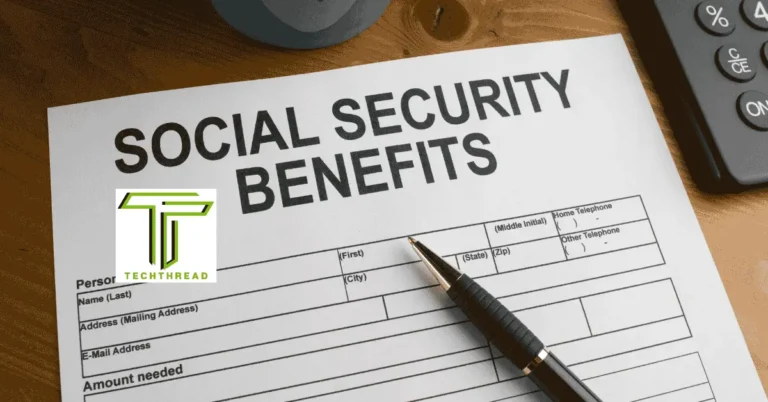Understanding Real Estate Law: A Practical Guide for Buyers, Sellers, and Investors
Buying or selling a property isn’t just about agreeing on a price. It’s about trust, clear paperwork, and making sure every legal detail is handled properly. A missing signature or vague contract term can delay the deal or worse, land you in court.
That’s why it’s important to understand real estate law. Whether you’re buying your first home, managing rental properties, or investing in commercial spaces, knowing the rules helps you avoid costly mistakes and keeps your investment safe.
Let’s learn about legal terms, how property laws work, and when to get legal support.
Table of Contents
Real Estate Law Basics
Real Estate Law
Real estate law is all about the rules that guide how property is owned, used, and transferred. It helps make sure everyone is on the same page knowing exactly what they’re buying, selling, or allowed to do with the property.
These laws create a clear framework for handling things like ownership rights, land use, and resolving disputes. Whether it’s a house, an office building, or an empty piece of land, real estate law applies to it all.
Here’s what it usually covers:
- Who owns what – Making sure ownership is clearly recorded and protected.
- How property is bought and sold – Laying out the legal steps to transfer property the right way.
- Rules about how land can be used – Like what can be built and where, based on zoning laws.
- What happens when there’s a disagreement – Helping settle disputes over things like boundaries or ownership.
Example:
If two people say they own the same land, the court checks official records to see who has the legal right to it. That way, ownership isn’t based on claims it’s based on proof.
Key Terms in Property Law
Understanding basic terms can help you avoid confusion during any property deal. Each one plays a role in determining how land and buildings are handled by law.
| Term | Meaning |
| Fee Simple | Full ownership of property with no restrictions on transfer or inheritance |
| Leasehold | Right to use property for a set period, but not ownership |
| Easement | Legal right to use part of your land (e.g., shared driveway) |
| Lien | Claim against property due to unpaid debt or taxes |
| Encroachment | Illegal use of your land (e.g., neighbor’s fence on your side) |
Legal Processes in Property Transactions
Understanding Conveyancing
When property is sold or bought, there’s a legal process in place to make sure the transfer is clean and correct. This is called conveyancing. It helps confirm that the property is legally sound and that ownership passes from seller to buyer without any issues.
Main Steps in Conveyancing:
- Check the title – Make sure the seller has the legal right to sell the property.
- Review the sale agreement – Go through the terms to protect both sides.
- Look for debts or claims – Find out if there are unpaid taxes, liens, or other problems.
- Manage funds and closing paperwork – Make sure everything’s paid and signed before the keys change hands.
Real-Life Example:
You’re buying a house. A real estate lawyer steps in to check the title, prepare the paperwork, and guide the closing process.
Title Transfer: What Happens
After an agreement is reached, the legal ownership has to be recorded. This means preparing and filing documents correctly.
What’s Involved in the Process:
- Preparing the deed – This document officially transfers ownership from seller to buyer.
- Checking for disputes – Making sure no one else has a legal claim on the property.
- Filing with the local records office – Recording the sale so it’s part of the public record.
Why It Matters:
Missing a signature or filing late can cause serious delays or even undo the sale. That’s why many buyers get title insurance it protects you in case an issue with ownership comes up after the deal is done.
Role of a closing Attorney
Final stage of a sale the closing attorney handle the remaining work of transferring. They confirm everything is perfect or done correctly properly.
What They Do:
- Ensure contract compliance
- Handle escrow and final payments
- File legal documents with the county
Commercial Example: A business deal may involve zoning checks or environmental rules. A commercial real estate lawyer ensures everything done under the rules.
Property Problems and Shared Disputes
Boundary Issues
Many property disputes come from unclear lines or shared land access. Problems often show up during construction or resale.
Common Causes
- Missing or outdated surveys
- Poorly recorded easements
- Overlapping property descriptions
Resolution
- Hire a land surveyor
- Consult a property dispute lawyer if the conflict continues
Trouble Between Landlords and Renters
Rental problems can come up when one side doesn’t stick to what’s written in the lease. This might mean late rent, property damage, or a landlord not making needed repairs. Clear terms and good communication can help avoid bigger issues.
Frequent Issues
- Lease violations
- Maintenance disputes
- Illegal entry
Fraud and Misrepresentation
Sometimes sellers give wrong information or hide important details. This can lead to serious legal trouble.
Examples:
- Undisclosed water damage
- Fake zoning claims
- False documents
Local Rules on How Property Can Be Used
Understanding Zoning Laws
Cities divide land into zones, each with its own rules. These zoning laws limit what you can build or how you use your land.
Regulations May Control:
- Building height and size
- Property use types
- Setback distances from roads or boundaries
Zoning Violations
Zoning violations can stop projects or result in fines. If you receive a notice, it’s best to act quickly.
If Cited:
- Review the violation notice
- Confirm accuracy
- Apply for a variance if needed
Hire a Real Estate Lawyer
Residential vs. Commercial
Property transactions can differ based on their purpose. Knowing the right kind of legal help saves time and prevents problems.
| Type of Lawyer | Best For |
| Residential Real Estate | Home sales, lease reviews, local laws |
| Commercial Real Estate | Business property, zoning, environmental reviews |
When You Need Litigation Support
Legal disputes sometimes require court action. A real estate litigation lawyer helps with:
- Breach of contract
- Title disputes
- Fraud claims
- Ownership challenges
Legal Guidance for All Parties
Certain situations call for legal review before moving forward. It’s worth hiring a lawyer if:
- There’s shared or inherited ownership
- The property has zoning or title issues
- You’re signing a complex lease or investment agreement
Real Estate Law by Region
United States
Each state has its own rules, but most follow the same basic steps. Buyers and sellers should stay updated on what applies in their location.
Typical Rules:
- Deeds: Must be filed with the local government
- Title Recording: Required in all states
- Disclosure: Sellers must reveal known property problems
Tip: State laws differ. Always check local requirements.
Canada & UK
Rules vary across regions, but some trends apply countrywide.
In Canada:
- Some provinces use Torrens system
- Strong title fraud protection
In the UK:
- Solicitor-managed transactions
- Leasehold ownership is common for flats
Avoiding Legal Pitfalls
Due Diligence Checklist
Before finalizing a deal, confirm the property meets all legal conditions. This helps prevent future disputes.
What to Check:
- Clear title (no liens or disputes)
- Boundary surveys
- Zoning and use permissions
- Building permits for changes or additions
Contract Clauses to Review
Real estate contracts can be complex. A few key clauses can affect your rights if something goes wrong.
| Clause Name | What to Watch For |
| Contingency | Protects buyer if loan or inspection fails |
| Disclosure | Requires seller to list known issues |
| Penalty for Delay | Outlines consequences of missing deadlines |
| Dispute Resolution | States how disagreements will be resolved (court or arbitration) |
Conclusion Real Estate Law
Real estate deals are legal transactions with long-term impact. Whether it’s your first home or a commercial property, you need to protect your rights.
Key Reminders:
- Understand core terms like title, lien, and zoning
- Always verify details with due diligence
- Hire legal help when contracts, disputes, or risks arise
Also Read: Discover Zooskooñ: The Future of Wildlife, Culture, and Conscious Travel







